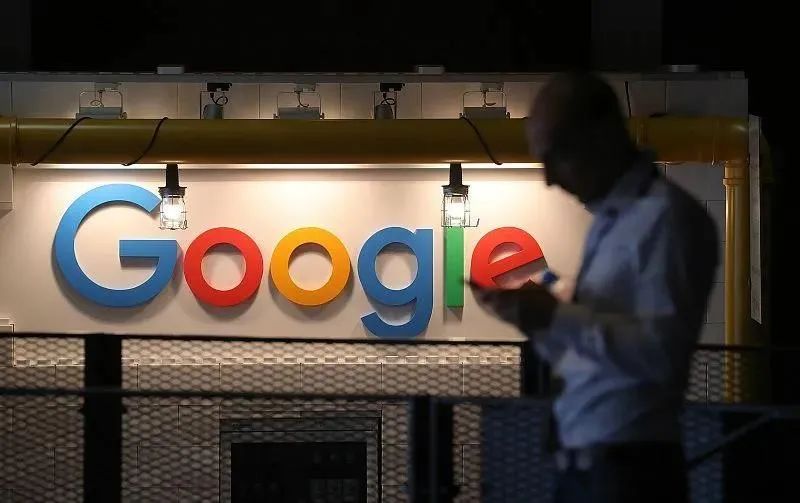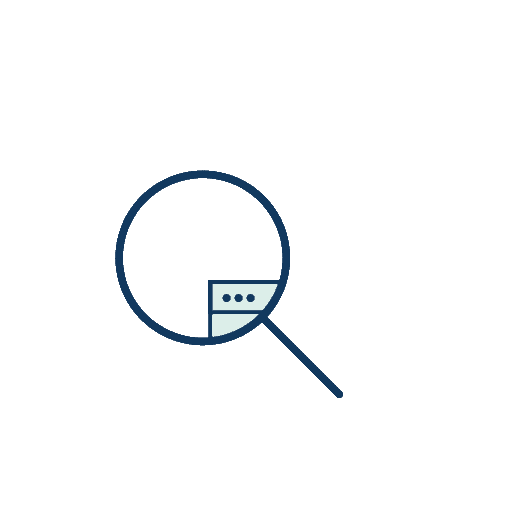Can Google escape under the pressure of antitrust investigation?
The following articles are from Sina Technology The author tried to code the manuscript of the little wave
One hand "palm" grip technology "fresh" smell.


Even if it doesn't break up, it's almost certain to hurt.
Source: Sina Technology
Author Zheng Jun
This time, Google may find it hard to get back on its toes. Of the four tech giants under investigation at the same time, Google is in the most dangerous position: antitrust litigation is on the horizon, and even if it is not broken up, it will almost certainly hurt.

Antitrust taboos
Within Google, the internet giant, antitrust has always been a taboo and sensitive term. For years, Google's management and employees have deliberately avoided topics and discussions, whether it's corporate meetings, intranet forums or work emails, and must not use the terms "crush", "kill" or "block" competitors. Clearly, Google is trying to prevent it from becoming court evidence in future investigations.
The same thing happens within Intel, the chip giant, and even when it comes to market share, it will be replaced by market segment share. In fact, the dominant giants in every industry are under antitrust pressure. So does Intel, and so does Google. Ever since becoming an internet search giant, Google has been hanging over its head the antitrust sword. In 2008, Google and Yahoo discussed a search advertising partnership that was directly rejected by the Justice Department.
Steven Levy wrote in In The Plex that as early as 2006, then-Google CEO Schmidt realized that the company was bound to face antitrust threats in the future. In public, he has repeatedly stressed that Google's share of the global advertising market is only 1%, trying to put Google in the global advertising market (not even the online advertising market) to discuss regulation, downplaying Google's failed market dominance, without mentioning Google's nearly 70% share of the online search market. Within the company, Schmidt has repeatedly stressed the importance of staying away from antitrust lines.
Schmidt is well aware of the power of the antitrust stick. In the late 1990s, as a direct competitor to Microsoft (he was sun's president and Novell's CEO), Schmidt actively lobbied the Clinton administration to launch an antitrust investigation into Microsoft and sue microsoft for using Windows to dominate its competitors. Microsoft was nearly forcibly split, and Mr Gates left. Even now, more than 20 years later, Mr Gates regrets that he was too young to take government antitrust litigation seriously.

Escaped the regulatory disaster
Still, Mr. Schmidt's concerns have come. Google was first subject to an antitrust investigation by the U.S. government in 2010. Christine Valney, who sued Microsoft on Bescape's behalf as the Obama administration's antitrust commissioner, began targeting Google in the antitrust investigation. In 2011, the Obama administration's Federal Trade Commission (FTC) launched a nearly two-year investigation into Google for allegedly favoring its own services and products in search results.
With Microsoft and Gates in the car, Schmidt is a close enemy. In the nearly two years since the FTC launched its investigation, Google has hired as many as 25 lobbying agencies to move up and down Washington, D.C. In 2012, Google became the largest technology company in the U.S. political lobby, a "throne" that has been in exchange for tens of millions of dollars a year. Not only did Schmidt personally take turns visiting key members of Congress in Washington, D.C., but he also campaigned for Obama's 2012 re-election campaign. During his eight years in office, Mr Obama has maintained a good relationship with the Silicon Valley internet giant.
In addition, Google has engaged in some secret and indirect lobbying efforts: it has hired senior advisers who could influence the FTC, sponsored politically influential think-tank scholars, and funded academic research projects at universities. At Google's direct request for funding, these think tanks and universities have either spoken out against antitrust lawsuits against Google, or invited dignitaries and lawmakers to their own Internet forums to subtly send a message to policymakers that Google should not be punished. In 2012, Google even personally prepared an invitation for an Internet forum at George Mason University.
During a congressional hearing in late 2011, Mr. Schmidt repeatedly emphasized that Google had brought economic and entrepreneurial opportunities to small and medium-sized U.S. businesses, publicly denouncing the so-called bias toward its own products as a complete displeasure, and named competitors such as Microsoft, Yelp, the business review site, and Expedia, a travel booking site. Under Mr. Schmidt's multi-pronged approach, in January 2013, just after Mr. Obama's re-election, the U.S. government announced that it would not take next steps against Google. Google escaped a regulatory disaster unscathed.

most at risk
Nearly a decade on, Google is once again at the forefront of antitrust. The Trump administration's Justice Department has launched a 14-month antitrust investigation into Google, finding out whether it is hindering competition in both search and advertising. But this time, Google may struggle to get back on its toes. Of the four tech giants under investigation at the same time, Google is in the most dangerous position: antitrust litigation is on the horizon, and even if it is not broken up, it will almost certainly hurt.
Over the past decade, Google's advantage in the U.S. Internet market has expanded. Today, Google's share of the web search market is more than 90%, its share of the mobile operating system market is more than 80%, and its share of the web browser, map, video and other services segments is more than 70%. Among the four internet giants currently under investigation, Google has an overwhelming lead in its core market over Amazon in e-commerce, Facebook in social media and Apple in mobile. Globally, Google dominates almost every market except China and Russia.
Google and Facebook were the main targets of congressional hearings for the big four technology companies in July. Lawmakers from both parties have very different concerns about the two companies: Republicans are more concerned about whether the two platforms are biased in political discourse, and Democrats are more focused on whether the two tech giants are holding back competition in the industry. Although the two parties have different starting points, they have agreed to deal with Google.
Last week, the House Antitrust Committee, led by Democrats, released a more than 400-page antitrust investigation that made it clear that all four technology companies had abused their market positions, called on Congress to legislate to spin off their businesses, and google's monopoly on search was highlighted. Judging by current polls, Democrats are likely to control both houses of Congress next year, meaning they are likely to continue to advance the current antitrust legislative agenda.

Influenced by political factors
According to U.S. media reports, the U.S. Department of Justice has reached a unified opinion on Google's antitrust case, but there are differences on the progress of the lawsuit. Investigators want to gather more evidence to win a subsequent antitrust lawsuit, while Attorney General William Barr and others want to sue Google as soon as possible. There is more or less a contradiction between the White House and Google. The current president has long accused Google of deliberately favoring the Democratic Party and presenting search results that are detrimental to him.
The U.S. Department of Justice has previously divided google into two groups: Google's search business is an antitrust priority, and another group investigates Google's online advertising business. Under U.S. antitrust rules, which previously defined natural monopolies, it is not a monopoly for a company to rely on its own products and technologies for market dominance, but it is illegal to use it to crush competitors.
In addition to the U.S. Department of Justice, the attorneys general of more than a dozen states, including Texas, Colorado, Iowa and Louisiana, plan to sue Google. The issue in suing Google doesn't matter to red and blue states. Although Qualcomm and others have faced FTC antitrust lawsuits before, given Google's market size and impact, the antitrust case is sure to be the most high-profile U.S. antitrust lawsuit in more than two decades, after U.S. v. Microsoft in 1998.
However, following the normal litigation process, as well as the possible ongoing appeals process in the future, it is likely to take four or five or more years from the U.S. Department of Justice's prosecution to the final decision. The two sides are more likely to reach a settlement, Google accepts government demands for major business changes, and may even spin off some of its businesses. In 1998, the United States and 19 states jointly sued Microsoft, and a settlement was reached three years after the formal indictment. Microsoft was ordered by a federal district judge to spin off the two companies before overturning the split in an appeals court.

Amend monopoly legislation
The current internet giant's antitrust investigation will also have far-reaching implications for future U.S. antitrust legislative processes. The United States was the first to enact antitrust legislation, passing the Sherman Act in 1890 to make monopoly clear, and then, in 1914, the Clayton Act, which defined price discrimination and barriers to competition, creating the Federal Trade Commission. This was followed by a series of amendments to antitrust laws.
As mentioned in the U.S. House of Representatives investigation report, the basic criterion of U.S. antitrust regulatory law used to be consumer-focused, that is, whether monopolies affect consumers' economic interests. The U.S. House of Representatives report recommends that Congress reformulate antitrust laws to accommodate new changes in the Internet age, shifting monopoly criteria to focus on industry competition, i.e. whether monopolies affect the innovation of other competitors in the industry.
The House report notes that today's technology companies have become the kind of monopoly power of the oil and rail tycoon era. In a sense, Apple, Google, Amazon and Facebook today can be compared to the big families of a century ago: Rockefeller (oil tycoon), Morgan (financial tycoon), Vanderbilt (transport tycoon), Carnegie (steel tycoon), all of which also dominate unshakable in their respective industries. But compared with traditional industry monopoly giants occupying resources and capacity, the Internet giants dominate data and algorithms. Whoever controls user data controls the market.
Previously unsustainable physical assets, today's user data is of greater value. And the data is sustainable, users will continue to generate new data when using the product, a large amount of data continue to drive the algorithm to improve, continue to expand the dominant advantage of the giants. Apple, Google, Amazon and Facebook are also AI giants, controlling users' online portals and almost all of their data, such as social contacts, consumer shopping, and hobbies.

IBM and Microsoft
Several of the monopoly giants that have been forcibly split over the past century include the Rockefeller family's Standard Oil Company, which was split into 34 companies in 1911, and now Mobil Oil, one of them; Alcoa is now one of them, after eight years of litigation, and in 1984, after 12 years of antitrust litigation, telecommunications giant AT&T finally split into eight subsidiaries. A long-distance telephone company and seven regional phone companies, the two largest U.S. carriers, Verizon and AT&T, are both former bells.
IBM and Microsoft, the two big tech giants, escaped the spin-off. The U.S. government began investigating IBM in 1969 and filed a lawsuit in 1975. The U.S. government points out that IBM's efforts to offer discounted prices to customers are predatory pricing, and that vertical integration of the company from hardware and software to support is essentially a monopoly expansion. Although the two eventually reached a settlement in 1982, IBM escaped the break-up, but they also had to abandon their previous competitive strategy. Without this antitrust lawsuit, there would be no PC era in the 1980s, let than the rise of Microsoft.
It was IBM's ability to dominate the PC industry under pressure from the government's antitrust litigation that gave the almost budding Gates and Allen the opportunity to develop an operating system (the processor was handed over to Intel). Gates' mother and IBM's chairman serve on the same charity. She recommended her son's software company, Microsoft, to IBM. Microsoft was eventually chosen in 1980 because IBM and other bidders did not agree. Gates didn't even come up with his own software products at the time, spending $50,000 on a PC that was licensed to IBM with a slight modification of the DOS system, which was successfully licensed to other hardware vendors and eventually became the operating system overlord in the PC industry.
Twenty years later, Microsoft faced an antitrust lawsuit from the U.S. government. Although Microsoft successfully appealed and reversed the spin-off ruling, Gates resigned as CEO in the lawsuit. Microsoft entered the Ballmer era and, in the shadow of antitrust, abandoned its aggressive expansionist strategy in favor of commercial profits. Another by-product of Microsoft's antitrust lawsuit is that Mr Gates agreed to invest $150m in Apple, which was on the brink of bankruptcy, to preserve its rivals, before Mr Jobs led the company back to life. By the same to go, Intel, which has long been under antitrust pressure, cannot be without AMD.

Splitting is not the goal
From IBM to Microsoft to Google, the three tech giants have two decades between antitrust lawsuits. But like the two giants before it, Google is just as unlikely to suffer a spin-off. From federal district courts to appeals courts to the Supreme Court, antitrust lawsuits by Google and the U.S. government can take at least four or five years or more. A reconciliation is still possible after the pro-Silicon Valley Biden took office.
The U.S. economy is recovering from the storm, the technology sector has become an engine of economic growth, and technology stocks have led the surge in U.S. stocks directly, helping the U.S. dominate the new global digital economy. Under such circumstances, it would be difficult for the U.S. government to hurt the global tech giants and undermine their competitiveness in global markets. That's the logic that Zuckerberg repeatedly mentioned at his Facebook hearing about China's internet giants: a crackdown on Facebook would only benefit Chinese companies and undermine America's competitiveness in the global Internet.
However, the government's anti-monopoly investigation and litigation will have a profound impact on the subsequent market competition. Whether or not the government wins the case in the end, the court's forced spin-off of Big Macs will force the industry giants to change their business strategies and create new market growth opportunities for many smaller rivals. Antitrust litigation also helps lawmakers clarify the Internet industry's business rules and create new antitrust regulations.
In Google's case, the U.S. Department of Justice's investigation focused on search and advertising, not other business areas such as Android. But under antitrust pressure, Google could also be forced to loosen its grip on the Android operating system and Chrome, giving many smaller rivals more room to compete. Google also dominates both areas.
Breaking up giants is not the purpose of antitrust, deter giants, break down barriers, encourage competition is.


Join the reader community of the American Stock Research Institute
Please.Follow WeChatPublic number
Or addSmall editor WeChat
you can consult to join
If not passed for 3 days please resend the application)




Go to "Discovery" - "Take a look" browse "Friends are watching"